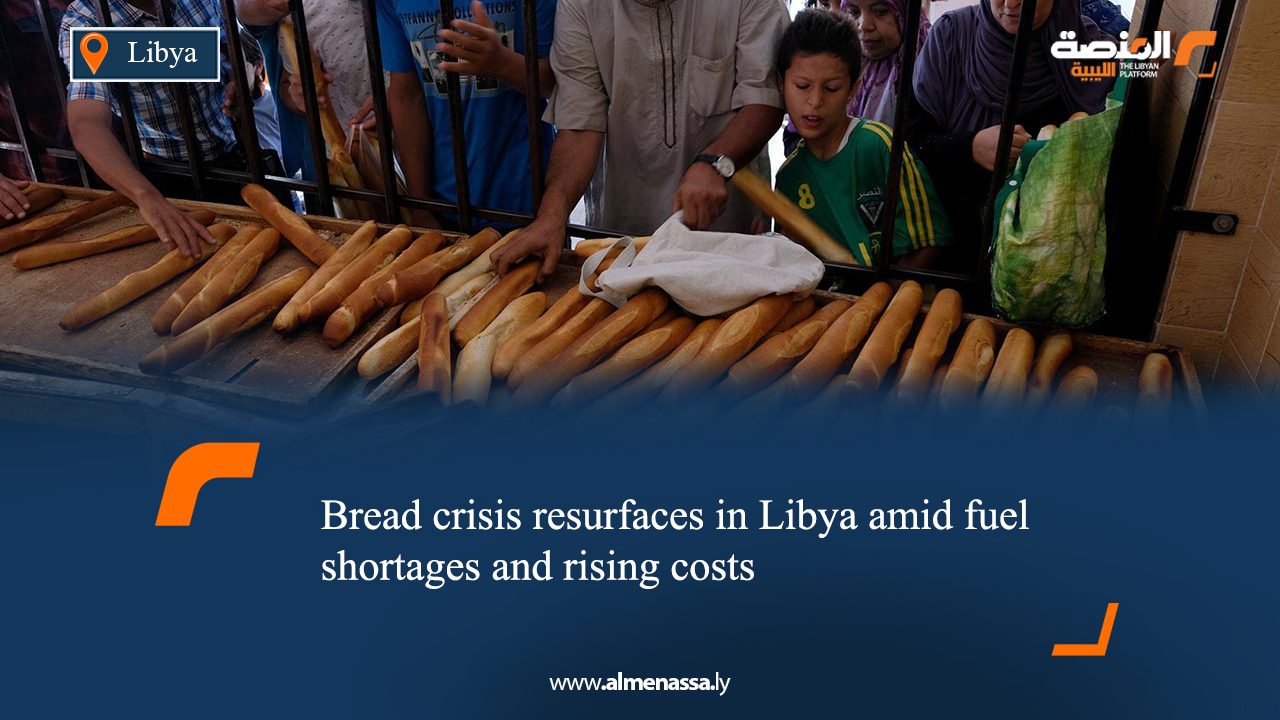Libya’s bread crisis is reemerging as bakery workers and union leaders sound alarm bells over deteriorating operating conditions, citing severe shortages in fuel, surging flour prices, and government-imposed pricing policies that threaten the survival of a critical industry. The looming disruption comes amid growing accusations that authorities have failed to acknowledge the sector’s daily struggles.
Nagui Al-Saghir, head of the local bakery workers union, warned of an imminent collapse in bread production due to insufficient fuel supplies. He noted that bakeries are allotted minimal monthly quantities, forcing many to turn to the black market where diesel prices soar to 900 dinars per 200-liter barrel — a crushing burden in the absence of government support or alternative provisions.
Al-Saghir said official pricing policies fail to reflect the steep rise in operating costs. With bakeries still bound to sell loaves at artificially low rates, some may be forced to shut down entirely, unable to keep up with mounting expenses.
Ali Abuazza, head of the High Committee for Bakery Monitoring, echoed the concerns, explaining that diesel allocations rarely exceed 1,000 liters — far short of what’s needed to meet daily production demands. The electricity crisis, he added, has severely disrupted flour output from local mills, which in turn allowed opportunistic traders to inflate prices unjustifiably, worsening the crisis.
The Bakers Syndicate issued a statement condemning what it described as “unilateral and unfair decisions,” most notably the pricing mandate requiring bakeries to sell four 100-gram loaves for just one dinar. The union said these measures were implemented without consultation and failed to consider the operational realities of the sector. It called on economic authorities and regulatory bodies to ensure a fair and efficient distribution of flour and fuel and urged them to refrain from policies that deepen — rather than resolve — the crisis.
In October, Libya’s Ministry of Economy under the Government of National Unity issued a decree setting the price of a standard loaf at 250 dirhams (a quarter dinar), reaffirming the 2020 price cap amid reports of market violations. Minister Mohamed Al-Hwaij instructed the Municipal Guard to enforce the regulation across all bakeries flouting the limits.
With breadmakers buckling under rising costs and restrictive regulations, fears are growing that Libya may soon face a full-scale bread shortage. As government responses remain piecemeal, bakers continue to shoulder the weight of structural neglect — a pressure that could ripple through markets, households, and social stability in the days ahead.


